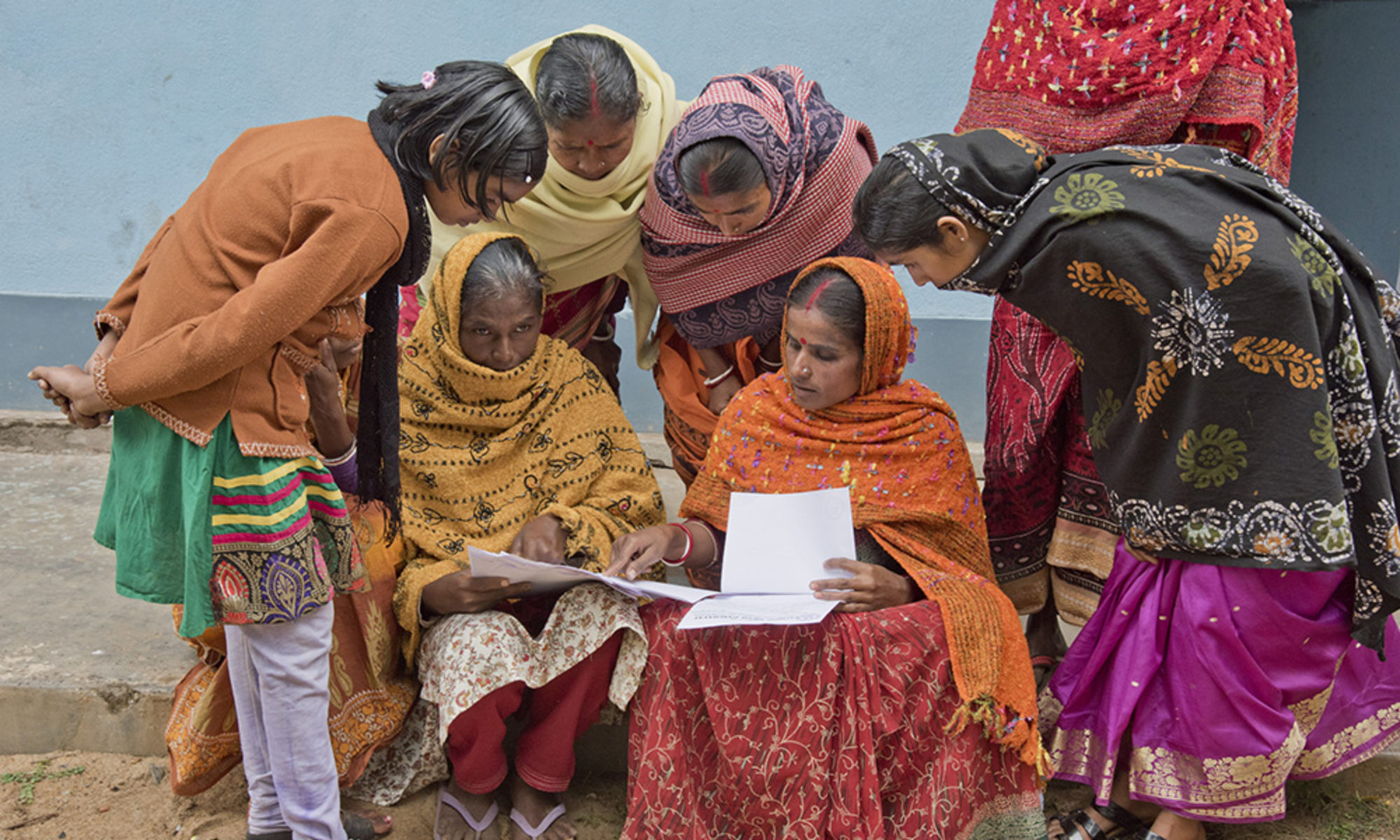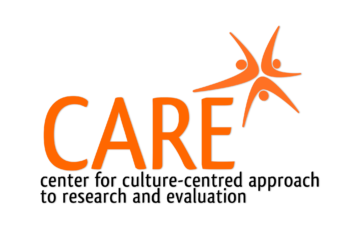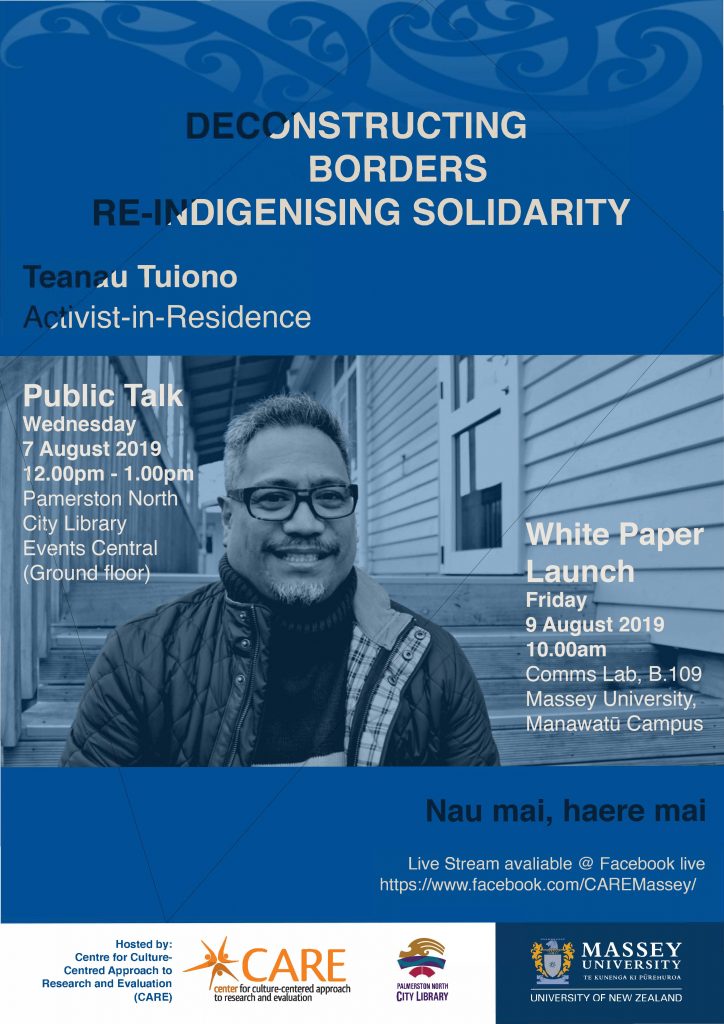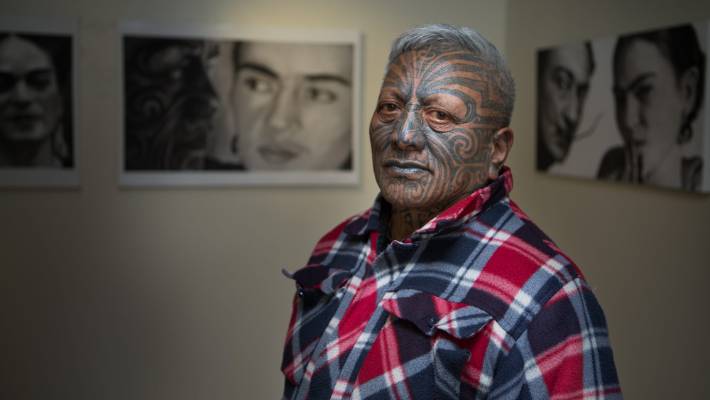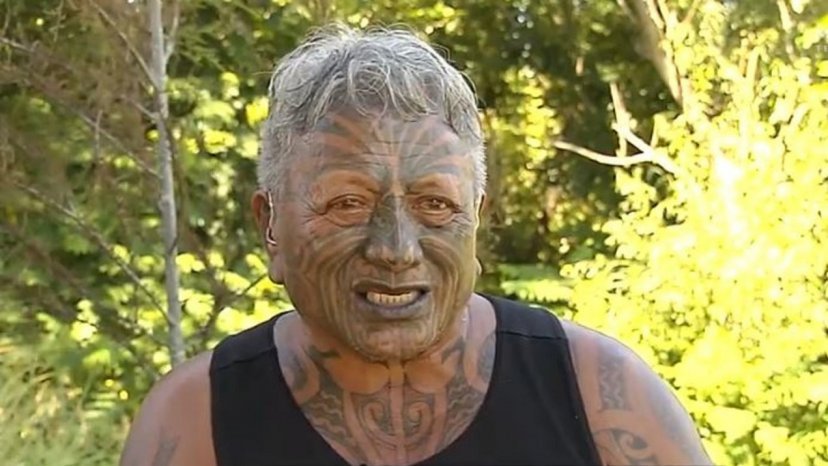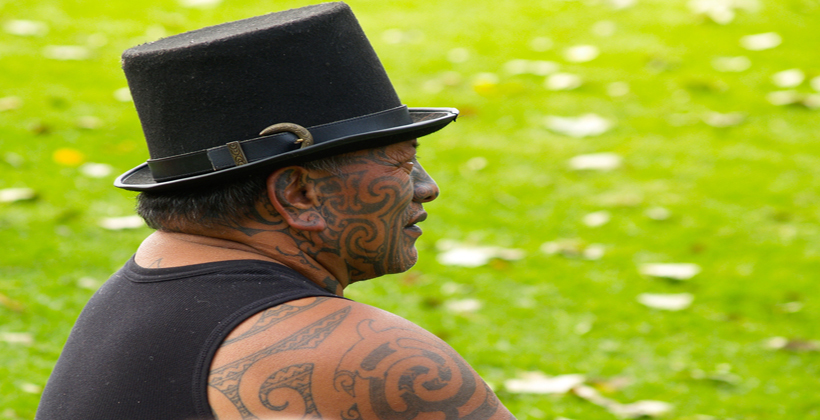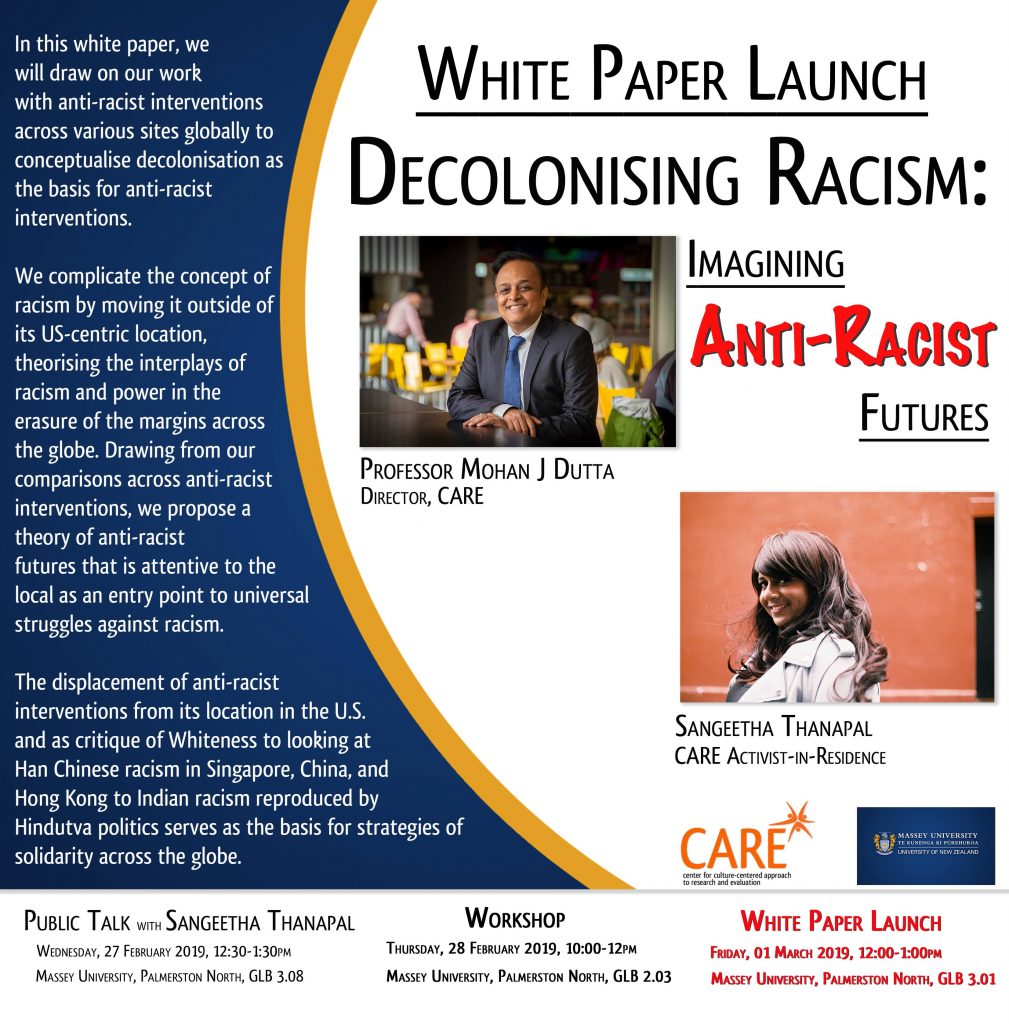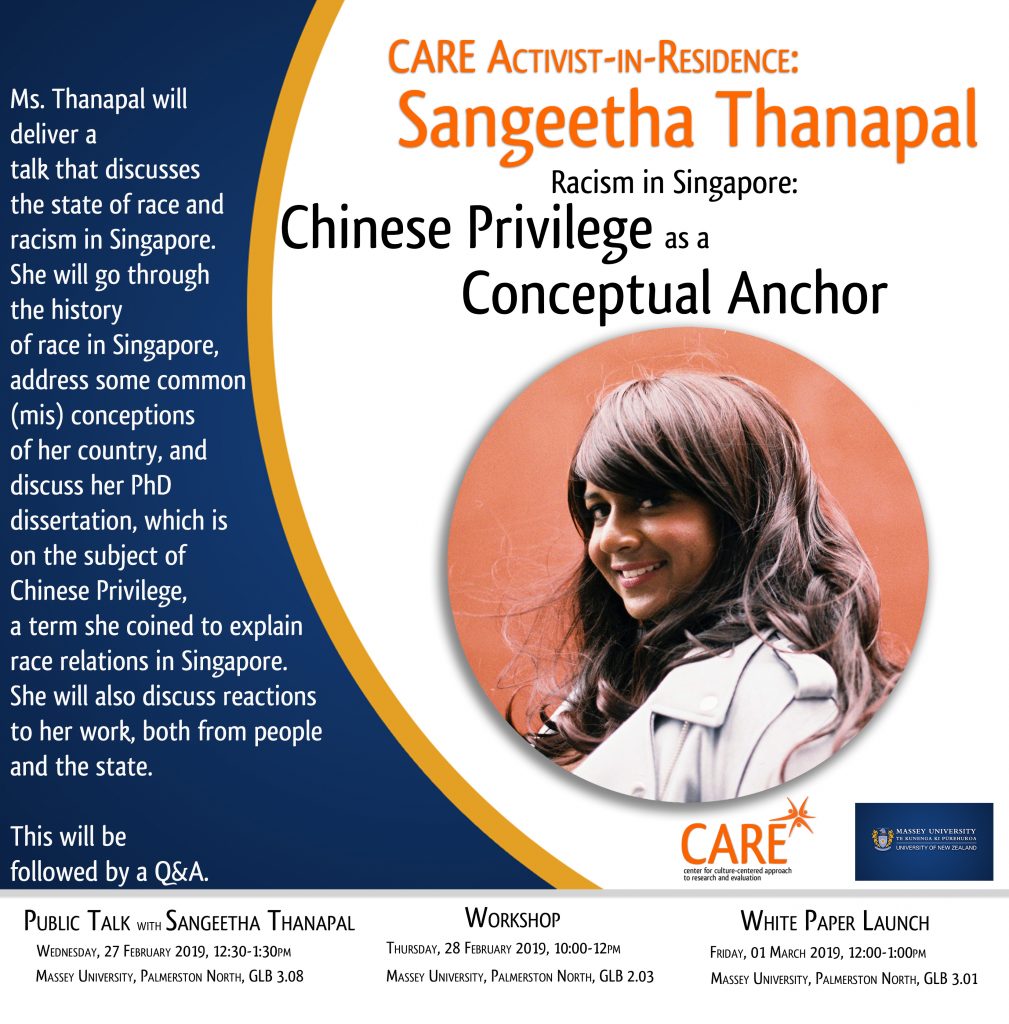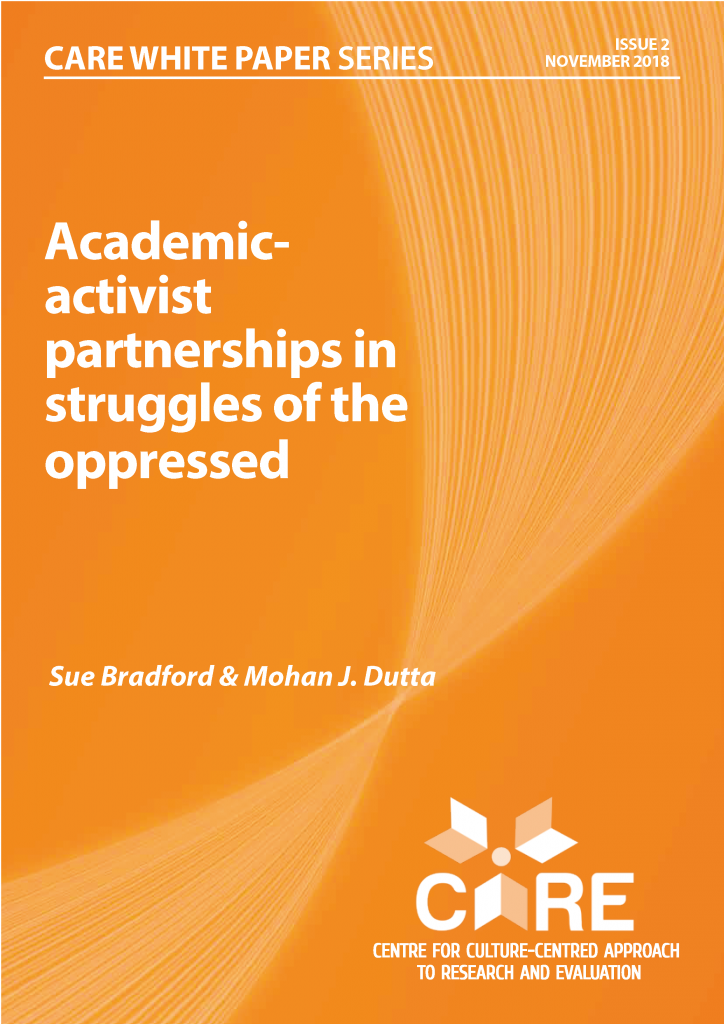Center for Culture-Centered Approach to Research and Evaluation (CARE) proudly invites Teanau Tuiono as our next Activist-In-Residence from 5th – 9th August and we would like to share some insights about Teanau’s project for his residency – The Solidarity Project.
The Solidarity Project is all about exploring conversations of solidarity and whānaungatanga across cultures and communities. Teanau has over 20 years’ experience as an activist, advocate and organiser at local, national and international levels on social justice and environmental issues. In Pasifika communities he is known for his work in the education sector and climate change advocacy. In Māori communities he is known for his indigenous rights activism. He has an interest at working at the intersection of indigenous rights and environmental issues where he has worked with remote indigenous communities on the frontlines of climate change and biodiversity loss.
Have a look at the his talks and conversations below for some insights about the project, more to follow in the coming days.
Come and join us at the CARE Events:
PUBLIC TALK
WEDNESDAY, 07 AUGUST 2019 12:00PM,
PALMERSTON NORTH CITY LIBRARY EVENTS CENTRAL ( GROUND FLOOR)
LIVESTREAM ON CARE FB PAGE: https://www.facebook.com/CAREMassey/videos/341724333429636/
WHITE PAPER LAUNCH
FRIDAY, 09 AUGUST 2019, 10:00AM
CoMMS LAB, B.109 MASSEY UNIVERSITY, MANAWATU CAMPUS
LIVESTREAM ON CARE FB PAGE: https://www.facebook.com/CAREMassey/videos/372259300150168/
RSVP on Facebook: Activist-In-Residence- Teanau-Tuiono
